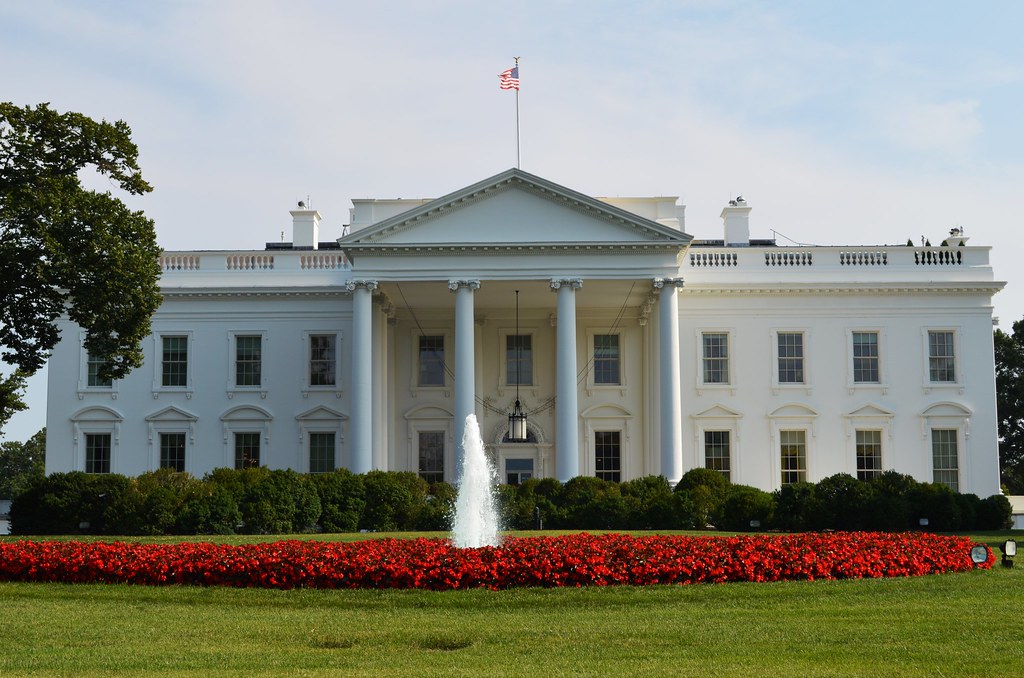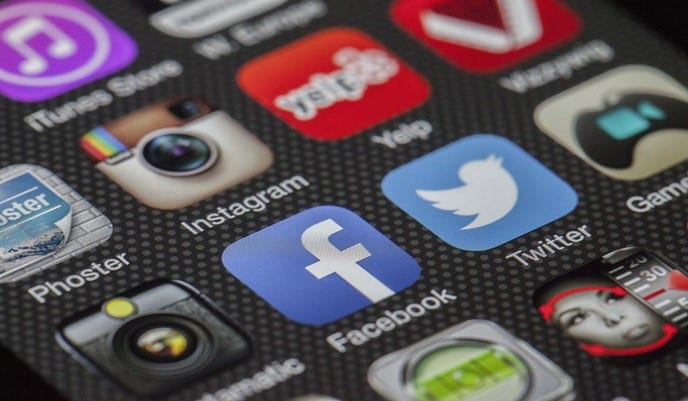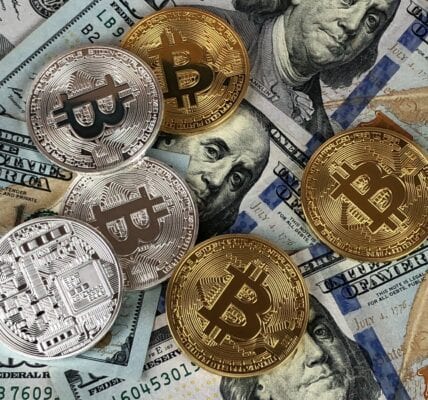A 280-character tweet has become a political megaphone for President’s, Prime Ministers, and political elites. But with the power to change the news and shape public perceptions, has social media gone too far? This article explores the use of Big Data, politicians on social media, and the rise of new extremist platforms. Read on to find out more!
Social Media Advertisements
With the average person spending over 2 hours a day on social media – Twitter, Facebook, and Google have become prime locations for political marketing. Social media and the use of Big Data have empowered politicians to influence voters and unlike traditional media outlets, have no obligation to restrict the spread of misinformation and targeted ads.
The Use of Big Data

Big data has revolutionised electoral campaigns and changed the way we think about politics. Politicians can accumulate information on voters, from what Netflix series they watch, where they shop, and what products they buy. You just have to look at the 2016 Cambridge Analytica scandal, where data from more than 50 million Facebook users empowered targeted ads, and essentially handed Trump the keys to the White House.
‘Technology and demographic data have made it easier for campaigns to target their base instead of appealing to a broad swath of voters’.
Sean Illing, March 2017
When voters are targeted by specific ads on social media, they enter an ‘opinion bubble’ and are unknowingly motivated to vote for a certain candidate or policy. Through such information, politicians are able to manipulate their political agenda, maintaining their core electorate and casting doubt on the ability of their political rivals. As there are no regulations on using fake information, can it be said that Big Data enables political manipulation?
The Potential for Change?
Social media and the use of Big Data has meant that fake news has targeted voters where it will be most effective. The 2020 Presidential election, saw slight changes in advertising regulations where Facebook introduced restrictions on publishing new political advertisements, the week before the election. Unfortunately, the media giant did not change its stance on using false information in targeted ads and fake news was shared right up until election day. Other platforms like Google and Twitter have limited certain types of political advertisements as well. Yet there is still controversy where social media platforms are able to self-police political advertisements and the use of Big Data on their sites.
Politicians on Social Media

Social media is designed to stimulate endless scrolling, giving users access to a continuous stream of information, be it truthful or not. The power of social media has enabled politicians to respond to backlash, rumours, and spread their own message, almost instantaneously. Yet the manipulation of information and the spread of fake news can be seen to undermine political integrity.
Donald Trump has become the embodiment of social media manipulation, tweeting a colossal 12,000 times throughout 2020. Trump has exploited his immediate access to voters, bypassing traditional outlets and influencing perceptions on personally damaging news stories. For example, he tweeted over 142 times during his impeachment trial. When social media is abused by political elites like Trump – does it threaten democracy and influence voters more than is realised?
The Rise of Extremist Platforms
In recent years, social media has also seen the rise of extremists platforms. The ‘unbiased’ platform ‘Parler’ has grown in popularity particularly among Conservatives, providing a platform for polarising groups such as QAnon. The Parler app and website allows users to post text or images that others can comment on, like, or ‘echo’- the equivalent of a retweet on Twitter.
‘Social media facilitates the swift spread of information, allowing citizens to easily get around government censors.’
Ronald Deibert, The Journal of Democracy

Parler is rife with misinformation, including baseless allegations of voter fraud and the spreading of radical ideologies such as, Holocaust denialism and Nazism. Particularly throughout the 2020 Presidential election, the platform became a focal point for Trump backed conspiracy theories. For example, many of those who attended the Capitol riot felt so passionately about the conspiracy theories spread by QAnon on Parler, that it fuelled the violence.
Is Social Media all Bad for Politics?
The long and short of it – no. President Trump and Big Data scandals have been the embodiment of social media manipulation but politics is beginning to change. Politicians are now faced with the option to use social media for the common good or their own personal gain. The reach of social media is undeniable but in time as voters become more informed, it will be increasingly difficult for politicians to spread fake news. There is always hope that the truth will prevail.
Read more on the effects of social media on democracy here.
Reference List
Beauchamp, Z. (2019). How Social Media Platforms Enable Politicians to Undermine Democracy. [online] Vox. Available at: https://www.vox.com/policy-and-politics/2019/1/22/18177076/social-media-facebook-far-right-authoritarian-populism.
Cadwalladr, C. (2019). The Great British Brexit robbery: How Our Democracy Was Hijacked. [online] The Guardian. Available at: https://www.theguardian.com/technology/2017/may/07/the-great-british-brexit-robbery-hijacked-democracy.
Clement, J. (2020). Global Time Spent on Social Media Daily 2018 | Statista. [online] Statista. Available at: https://www.statista.com/statistics/433871/daily-social-media-usage-worldwide/.
Halpern, S. (2019). The Problem of Political Advertising on Social Media. [online] The New Yorker. Available at: https://www.newyorker.com/tech/annals-of-technology/the-problem-of-political-advertising-on-social-media.
Illing, S. (2017). A Political Scientist Explains How Big Data Is Transforming Politics. Vox. [online] 16 Mar. Available at: https://www.vox.com/conversations/2017/3/16/14935336/big-data-politics-donald-trump-2016-elections-polarization.
Lewis, P. and Hilder, P. (2018). Leaked: Cambridge Analytica’s Blueprint for Trump Victory. [online] The Guardian. Available at: https://www.theguardian.com/uk-news/2018/mar/23/leaked-cambridge-analyticas-blueprint-for-trump-victory.
McCarthy, N. (2021). Infographic: Trump Tweeting as Much as Ever amid Twitter Standoff. [online] Statista Infographics. Available at: https://www.statista.com/chart/19561/total-number-of-tweets-from-donald-trump/
Nott, L. (2020). Political Advertising on Social Media Platforms. [online] American Bar. Available at: https://www.americanbar.org/groups/crsj/publications/human_rights_magazine_home/voting-in-2020/political-advertising-on-social-media-platforms/.
Ravel, A.M. (2019). Opinion: Facebook, Google and Twitter’s Political Ad Policies Are Bad for Democracy. [online] CNN. Available at: https://edition.cnn.com/2019/12/18/perspectives/facebook-google-twitter-political-ads/index.html.
The Economist (2018). Why is Mark Zuckerberg testifying in Congress? [online] The Economist. Available at: https://www.economist.com/the-economist-explains/2018/04/09/why-is-mark-zuckerberg-testifying-in-congress.





Recent Comments